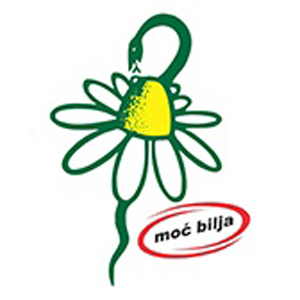
Final exams, retake exams at the end of the school year, entrance exams for high schools or universities, and exams from the regular June exam session are certainly assessments of knowledge, the results of which significantly influence the near or distant future of young people. Therefore, it is completely understandable that the end of June and the beginning of July are stressful periods for many schoolchildren and students.
Although moderate tension during exam periods can be beneficial and stimulating for mobilizing energy and focusing on solving tasks and problems, excessive fear and anxiety can be extremely hindering factors that sabotage success. In a state of intense stress, the ability to access and present the acquired knowledge in the best possible way is reduced, and sometimes complete blockage occurs, resulting in unsatisfactory exam outcomes.
 The causes of pressure and stress can vary. Sometimes, it is the expectations of parents or the surrounding environment, other times it is personal standards and perfectionism. Additionally, life circumstances can play a role, especially when the exam results have a decisive impact on the person's future.
The causes of pressure and stress can vary. Sometimes, it is the expectations of parents or the surrounding environment, other times it is personal standards and perfectionism. Additionally, life circumstances can play a role, especially when the exam results have a decisive impact on the person's future.
Therefore, it is important to combat the intense forms of exam stress with appropriate measures, as this type of stress is not inevitable.
Proper preparation and mastery of the material before the exam are crucial, as they contribute to a sense of confidence in one's own knowledge and stress prevention
Effective study methods, structuring key topics, and connecting the material, along with good time management on a daily and weekly basis, ensure optimal preparation and reduce pressure. Scheduled breaks help maintain learning and memory capacity, as well as sufficient sleep; therefore, self-discipline is essential during this period.
Samples of written tests from previous exam sessions are invaluable for assessing knowledge and practicing time management during the exam. Oral exam questions should also be practiced, taking into account time for writing outlines and presentation. This part of the preparation is best done with colleagues, whose feedback can be extremely useful.
Physical activity is beneficial for relieving stress, while social interactions and meetings with friends, accompanied by laughter and jokes, help regulate stress hormones. Massage, breathing exercises, and meditation are also highly beneficial for relaxation.
 Adequate quality sleep helps regulate stress hormones and refresh mental capacities. If sleep is disturbed, herbal-based products that aid in falling asleep without the undesirable effects of dependency can be helpful. Tension often affects appetite, whether it reduces it or triggers cravings for sweets, which is certainly not healthy. Therefore, a balanced diet rich in fresh fruits and vegetables, proteins, and carbohydrates is particularly important to ensure the digestive system functions smoothly and the nervous system is regularly supplied with the necessary energy for learning and memory.
Adequate quality sleep helps regulate stress hormones and refresh mental capacities. If sleep is disturbed, herbal-based products that aid in falling asleep without the undesirable effects of dependency can be helpful. Tension often affects appetite, whether it reduces it or triggers cravings for sweets, which is certainly not healthy. Therefore, a balanced diet rich in fresh fruits and vegetables, proteins, and carbohydrates is particularly important to ensure the digestive system functions smoothly and the nervous system is regularly supplied with the necessary energy for learning and memory.
Written and oral exams require different types of preparation
If an anxiety attack strikes despite your preparation, breathing exercises can be helpful: take a deep breath while counting slowly to 5, then exhale slowly while counting to 10. Repeat this exercise 5 times. Changing your body position can also help—move your shoulders by making circular motions for a few minutes to release tension in your neck and shoulder blades, and shake your palms; this will also help relieve stress.
During written exams, if the test format allows, it’s a good strategy to first answer all the questions you are certain about. Then, tackle the questions that require synthesizing information from different areas. If you're not completely sure about certain answers, it’s advisable to review all the questions once again, as some of the answers may be hidden within others, especially when dealing with more complex topics.
An oral exam, in addition to the necessary knowledge of the material, also involves direct communication with the examiner, which can be an additional source of stress for some individuals. To minimize anything that could hinder your ability to demonstrate your knowledge, it’s important to wear clothes that make you feel comfortable for the exam. Allow about two hours between your meal and the exam so that the digestive process doesn’t disrupt you and to ensure your nervous system has enough energy. Preparing the outline and presentation method is also a time that can be used for breathing exercises to help with relaxation. If the examiner is also a professor whose lectures you attended, using their terminology and structure in your presentation can contribute to better communication and a more successful outcome.
Herbal medicine can be beneficial in mitigating exam-related stress
The medicinal herb that has a beneficial effect on the nervous system and digestion is lemon balm. Thanks to the calming properties of its active ingredients, it positively impacts stress relief, nervousness, and stomach discomforts without causing drowsiness, making it ideal for sensitive individuals during exam periods. The advantage of this tea is that it can also be consumed by those under 18 years old.
Valerian root is traditionally recommended for insomnia, agitation, and stress. Its use does not lead to dependency, but it is not recommended for individuals under 18 years of age.
The active ingredients with antidepressant effects found in St. John's Wort may also be helpful in alleviating mental exhaustion, irritability, and depressive episodes. Additionally, hawthorn flower and leaf tea has a calming effect on the nervous system and helps ease palpitations.
Hop cone tea helps with relaxation and promotes easier sleep, while for better concentration, the use of green or black tea, is recommended, as the caffeine content enhances focus and memory.
 Calming drops can also be used just before an exam to alleviate stress, while drops for excessive sweating can be helpful for individuals whose stress manifests as heavy sweating. Tea for nervous stomachs has a calming effect on nausea and aids digestion, and in cases of stress-induced diarrhea, teas made from the rhizome of heartgrass and the bark of wild pomegranate fruita may provide relief.
Calming drops can also be used just before an exam to alleviate stress, while drops for excessive sweating can be helpful for individuals whose stress manifests as heavy sweating. Tea for nervous stomachs has a calming effect on nausea and aids digestion, and in cases of stress-induced diarrhea, teas made from the rhizome of heartgrass and the bark of wild pomegranate fruita may provide relief.
However, if the stress is so severe that it interferes with daily life, it is advisable to consult a doctor or psychotherapist for appropriate treatment.






